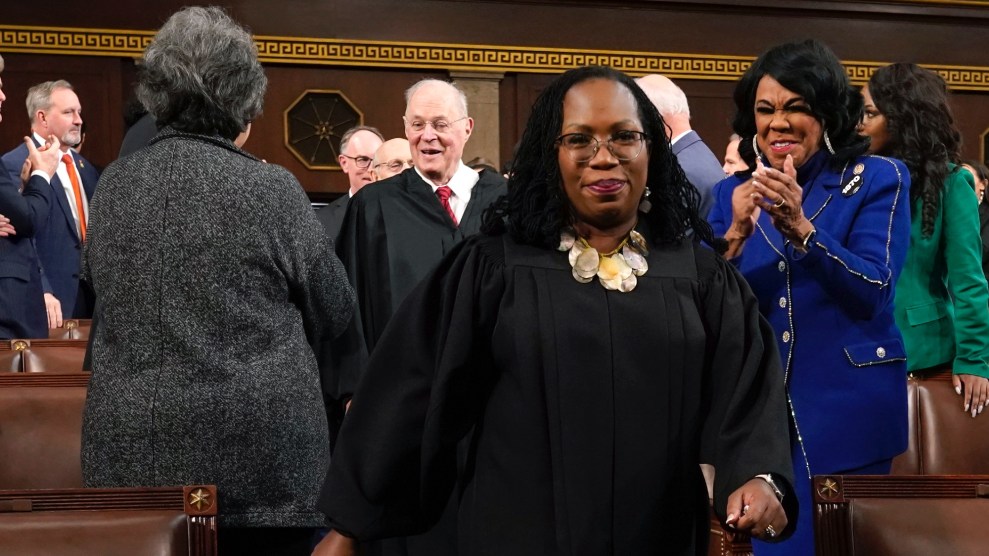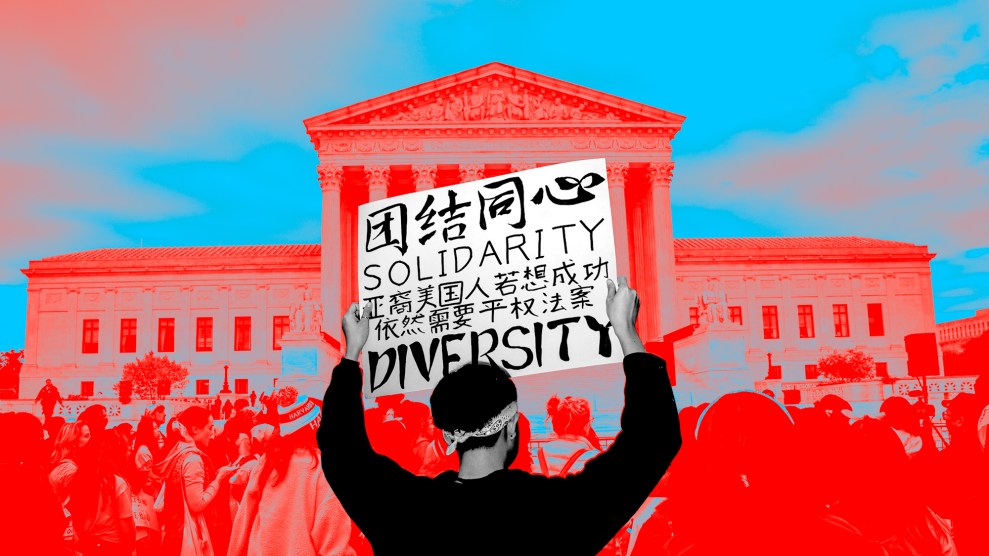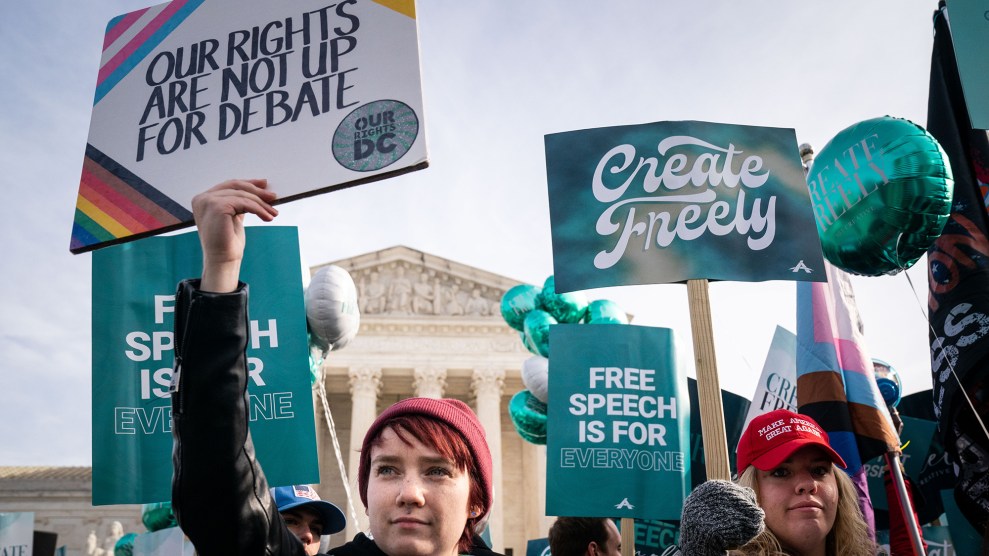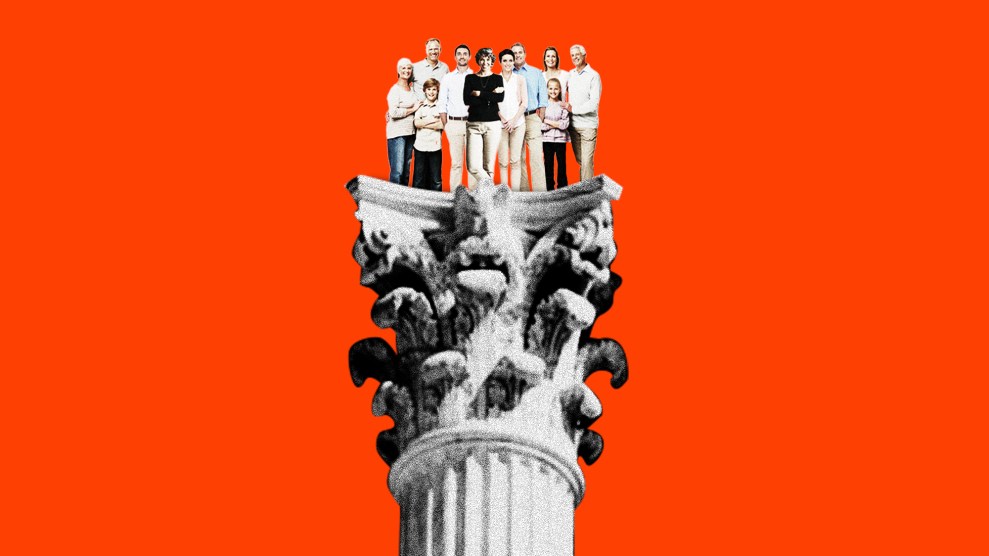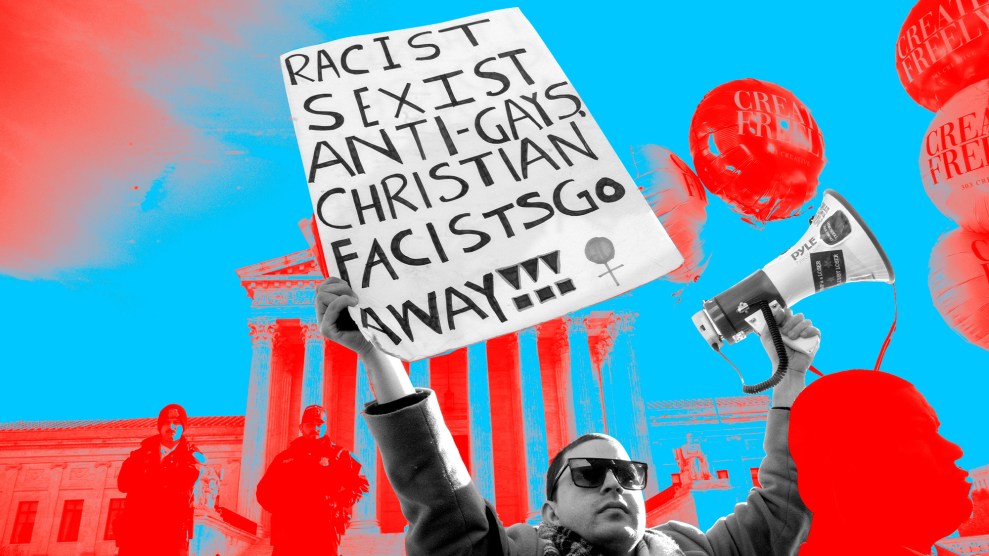
Mother Jones; Patsy Lynch/IPX/AP
The Supreme Court on Friday allowed certain businesses to discriminate against LGBTQ people, creating a large loophole in federal and state civil rights laws that have protected Americans for decades. Justice Neil Gorsuch authored the opinion for the court’s conservative justices, who made up the 6 vote majority. The court’s three Democratic-appointed justices dissented.
The case, 303 Creative v. Elenis, was brought by a web designer who wants to create wedding websites for opposite-sex couples but not for same-sex couples—a form of economic discrimination that harkens back to the era before the civil rights movement. But under Colorado’s public accommodations law, services offered to some people must be offered to all. Today, the Republican-appointed justices rolled back the clock and once again opened the marketplace to discrimination.
The court ruled that the web designer’s work is a form of artistic expression and that forcing her to create a website for a same-sex wedding is compelling speech in violation of her First Amendment rights. The ruling thus draws a huge loophole in civil rights law for businesses who claim that their product is a form of speech. It creates a new reality for LGBTQ people, who can now face discrimination from businesses that refuse to serve them because of who they are. In some areas of the country, this might make it difficult to procure certain goods and services. But throughout the nation, it creates the impression that LGBTQ people are second-class citizens who do not have the same freedoms as everyone else. The decision green lights signs—either in brick and mortar stores or on websites—that announce businesses will not serve LGBTQ people the same way they once told Black people and Jews not to enter, in what amounts to a form of public shaming.
Moreover, the ruling comes, as Justice Sonia Sotomayor wrote in dissent, at a time when around “the country, there has been a backlash to the movement for liberty and equality for gender and sexual minorities.” This includes bans of drag show and violence directed toward them, another way in which the economic activity of transgender people is being shunned. “Today, the Court, for the first time in its history, grants a business open to the public a constitutional right to refuse to serve members of a protected class,” she added.
The ruling doesn’t necessarily stop at LGBTQ discrimination. It opens the door for discrimination against people based on their race, religion, sex, national origin, and disability. Drawing a line between free speech for people with anti-LGBTQ views and for those who oppose interracial marriage, interfaith marriage, or simply any activity by people of a disfavored group is likely to be impossible. This came up repeatedly during oral arguments, during which Justice Ketanji Brown Jackson asked whether a photographer offering nostalgic photoshoots with Santa could restrict his service to white children to preserve a vintage vibe the photographer might aim to capture. The lawyer for the web designer, Kristen Waggoner, conceded not only that his discrimination might be allowed, but also that Supreme Court itself would be forced to draw such lines. During the hearing, Justice Sonia Sotomayor similarly wondered whether a web designer with eugenicist views could refuse to make a disabled couple’s a wedding website.
Waggoner is president of the Christian conservative group Alliance Defending Freedom, which is representing the designer and other similar business owners around the country as part of a nationwide litigation strategy to allow anti-LGBTQ discrimination.
For two decades, the Supreme Court had repeatedly sided with LGBTQ people against laws that persecute them or restrict their freedoms. In 2003, the court struck down a criminal ban on sexual intimacy between people of the same sex in the landmark case Lawrence v. Texas. In 2015, the court established a constitutional right to same-sex marriage. And in 2020, the justices extended the employee protections in the 1964 Civil Rights Act to LGBTQ people. Now, the court’s Trump-stocked conservative bloc enjoys a 6-3 majority, and their decision today represents a stark reversal of that trend.
Some Americans may think of the era of open economic discrimination as a relic of the past. Black people traveling before and during the civil rights movement relied on the so-called Green Book to find accommodations in the Jim Crow south. The era, and that practice, is considered so bygone that Hollywood recently turned it into a feel-good movie.
Only the justices can say how far back they intend to go with today’s decision. But the majority’s opinion has opened the door to a kind of economic discrimination the country hasn’t seen in more than half a century, where people seeking goods and services have no recourse for being turned away because of who they are.

